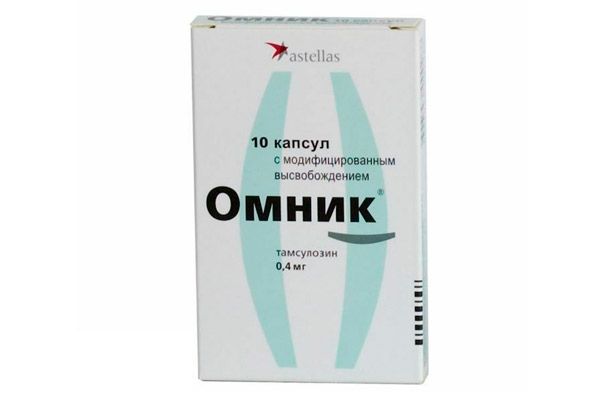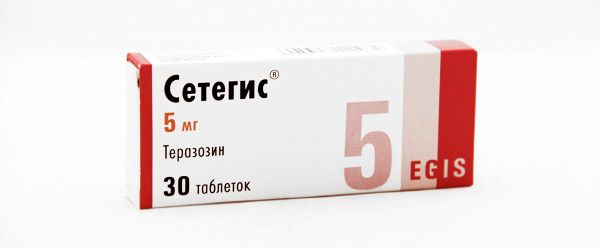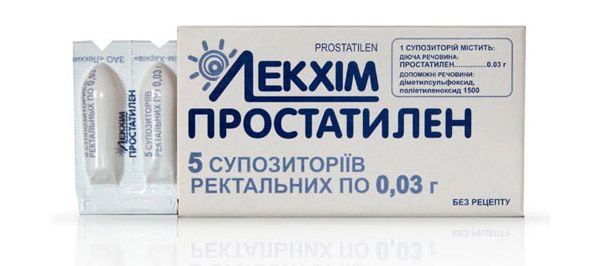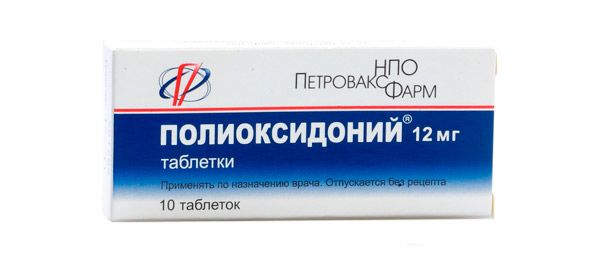Medical expert of the article
New publications
Preparations
Prostatitis pills
Last reviewed: 04.07.2025

All iLive content is medically reviewed or fact checked to ensure as much factual accuracy as possible.
We have strict sourcing guidelines and only link to reputable media sites, academic research institutions and, whenever possible, medically peer reviewed studies. Note that the numbers in parentheses ([1], [2], etc.) are clickable links to these studies.
If you feel that any of our content is inaccurate, out-of-date, or otherwise questionable, please select it and press Ctrl + Enter.
Unfortunately, many men know what prostatitis is – inflammatory disease of the prostate often occurs after 40 years, and in some even earlier. If the process is not treated in time, it will become chronic. And this is already fraught with very unpleasant consequences, including problems with urination and even with erection. In the early stages, the patient can be helped by pills for prostatitis: correctly selected drugs will slow down the development of inflammation and restore the function of the prostate gland.
Indications prostatitis pills
Prostatitis pills are usually prescribed based on information about the pathogen, which can be obtained by taking certain types of tests. The examination and subsequent treatment are prescribed by a doctor. In rare cases, when the pathogen cannot be identified, the doctor can prescribe drugs with a broad spectrum of action, which significantly increases the chances of destroying the infection in the prostate.
Most often, tablets for prostatitis are prescribed according to the following scheme:
- Acute infectious prostatitis caused by microbes such as E. coli, enterococci, Klebsiella, Proteus or Pseudomonas is treated with antibiotics. The drugs of choice in this case may be tetracycline agents or fluoroquinolones. In severe cases, antibiotics of the cephalosporin series are added, and if concomitant sexually transmitted infections are detected, additional specific treatment is required.
- Chronic microbial prostatitis most often develops as a result of specific inflammatory processes caused by chlamydia, ureaplasma or mycoplasma. Erythromycin or doxycycline can be prescribed against such an infection. The duration of such therapy is at least 14 days.
- Latent prostatitis occurs practically without symptoms, but even in this case a 2-week course of antibiotic therapy is prescribed.
- Non-infectious prostatitis, the development of which is not related to microbial invasion, is treated with symptomatic drugs. The goal of such treatment is to restore normal urine flow, relieve spasm from the urethra and eliminate prostate edema. Additionally, analgesics are taken to relieve pain in the groin and lower back.
 [ 1 ], [ 2 ], [ 3 ], [ 4 ], [ 5 ], [ 6 ], [ 7 ], [ 8 ], [ 9 ], [ 10 ]
[ 1 ], [ 2 ], [ 3 ], [ 4 ], [ 5 ], [ 6 ], [ 7 ], [ 8 ], [ 9 ], [ 10 ]
Release form
Treatment of prostatitis will be more effective if it is carried out in a complex, simultaneously affecting all possible links in the chain of the inflammatory process. That is why, in case of inflammation of the prostate gland, doctors do not limit themselves to prescribing any one drug, but use a combined therapeutic scheme using the main drug groups.
- Prescribing antibiotics is the main step in fighting the disease. It is better if the drug is prescribed after conducting a bacterial culture: in this case, it is possible to say exactly which drug can help. Sometimes antibiotics are combined, changed among themselves, achieving complete destruction of pathological microbial flora.
Cemidexor |
Doxycycline |
|
Pharmacodynamics and Pharmacokinetics |
Tablets for prostatitis with a wide spectrum of antibacterial activity. The drug penetrates well into the tissues and fluids of the body. |
A semi-synthetic antibacterial agent of the tetracycline group. Remains in the bloodstream for 18 to 24 hours. |
Contraindications for use |
Allergies, liver or kidney failure, gastrointestinal diseases, pregnancy. |
Allergy to tetracycline drugs, severe liver disease, leukopenia. |
Side effects |
Dyspepsia, allergic dermatitis, headache. |
Anemia, allergies, increased intracranial pressure, tinnitus, sleep disorders, fatigue, apathy, dyspeptic disorders. |
Method of administration and dosage of tablets for prostatitis |
Take 400 mg once a day or 200 mg twice a day. Treatment continues for up to 10 days. |
Taken orally, with food, 100-200 mg per day. The course of therapy is 10 days. |
Overdose |
Disruption of the balance of intestinal microflora. |
Uncommon: pancreatitis, kidney disease. |
Interactions with other drugs |
Do not use together with diuretics or antacids. |
It is not advisable to prescribe it with iron, zinc, aluminum, calcium preparations, with adsorbents, barbiturates, other antibiotics, as well as alcohol and alcohol-based products. |
Storage conditions Best before date |
Store in a dark place at normal temperature for up to 2 years. |
Keep out of reach of children at room temperature. Shelf life is up to 3 years. |
- The use of α-blockers helps relieve spasm of the urethra and reduce swelling of the prostate gland. Such drugs are used in almost all treatment regimens for prostatitis.
Omnic
|
|
Pharmacodynamics Pharmacokinetics |
Prostatitis tablets based on tamsulosin, a specific α-adrenergic receptor blocker. Has almost 100% bioavailability. |
Contraindications for use |
Potential for allergies, severe kidney disease, orthostatic collapse. |
Side effects |
Dizziness, decreased blood pressure, arrhythmia, bowel disorders, cases of retrograde ejaculation. |
Method of administration and dosage |
Orally, after the morning meal, 0.4 mg. The duration of treatment is determined by the doctor. |
Overdose |
There have been no reports of overdosage with Omnic tablets for prostatitis, but a sharp drop in blood pressure and tachycardia can be expected. |
Interaction with other medications |
No significant interactions were found. |
Storage conditions and shelf life |
Store at temperatures up to +25°C for up to 4 years. |
Setegis
|
|
Pharmacodynamics Pharmacokinetics |
Prostatitis tablets that reduce resistance to urine outflow and normalize the urination process. The maximum concentration of components is detected within one hour, regardless of food intake. |
Contraindications for use |
Pediatrics, tendency to allergic reactions. |
Side effects |
Decreased blood pressure up to fainting, headache, dyspepsia, asthenia. |
Method of administration and dosage of tablets for prostatitis |
Take 1 to 10 mg at night, depending on the indication. |
Overdose |
Low blood pressure, loss of coordination. |
Interaction with other drugs |
An increase in the hypotensive effect is observed in combination with antihypertensive drugs. |
Storage conditions Best before date |
Store at room temperature for up to 3 years. |
Prostatilen
|
|
Pharmacodynamics Pharmacokinetics |
A preparation containing water-soluble peptides obtained from bovine prostate. Kinetic properties have not been determined. |
Contraindications for use |
Possibility of allergy. |
Side effects |
Not observed. |
Method of administration and dosage of tablets for prostatitis |
Prescribed at 5-10 mg per day. Duration of therapy is up to 10 days. |
Overdose |
No cases were reported. |
Interaction with other drugs |
No interactions were found. |
Storage conditions Best before date |
Store in a cool place for up to 3 years. |
- Painkillers for prostatitis are used to relieve the patient's condition in severe pain. Such drugs are not always used, since the pain in prostatitis is not pronounced in everyone, and the side effects of such drugs are varied.
Ibuprofen |
Diclofenac |
|
Pharmacodynamics Pharmacokinetics |
Nonsteroidal anti-inflammatory tablets for prostatitis with analgesic effect. The maximum possible concentration in the bloodstream is detected for 1-2 hours. |
Non-steroidal anti-inflammatory tablets that are most effective for pain of inflammatory genesis. The maximum level of the drug is detected 4-5 hours after oral administration. |
Contraindications for use |
Erosions and ulcers of the gastrointestinal mucosa, blood disorders, tendency to allergies, optic neuritis. |
Allergy, gastrointestinal ulcer, acute enterocolitis, pregnancy, cardiac decompensation, hematopoietic disorders, severe liver or kidney pathologies. |
Side effects |
Dyspepsia, anorexia, headaches, sleep disorders, damage to the digestive organs. |
Pain in the stomach, headaches, fatigue, dermatitis. |
Method of administration and dosage |
Prescribed at 400 mg three times a day, after meals. |
Take orally after meals, 100 mg once a day. |
Overdose |
Abdominal pain, dyspepsia, feeling of fatigue, decreased blood pressure, arrhythmia. |
Bloody vomiting, diarrhea, convulsions, difficulty breathing, dizziness. |
Interactions with other medications |
Concomitant use with furosemide is not recommended due to a decrease in diuretic effect. |
Do not administer with diuretics, anticoagulants, sleeping pills, or ethyl alcohol. |
Storage conditions Best before date |
Store for up to 2 years at temperatures up to +25°C. |
They are stored for three years under normal conditions. |
- Herbal and homeopathic tablets for prostatitis have become especially popular in the last decade. Treatment with such drugs is usually effective and absolutely safe.
Afala |
Garbeol |
|
Pharmacodynamics Pharmacokinetics |
Homeopathic tablets for prostatitis. Kinetic properties have not been studied. |
Herbal tablets for prostatitis with pumpkin oil. |
Contraindications for use |
Possible allergy. |
Exacerbation of peptic ulcer, gallstones, allergic tendency. |
Side effects |
There were no cases. |
Sometimes – bowel disorders in the form of diarrhea. |
Method of administration and dosage |
Prescribe 2 tablets under the tongue between meals, in the morning and at night. The therapeutic course lasts 4 months. |
Prescribed half an hour before meals, 2 tablets three times a day. The therapeutic course is up to 4 months. |
Overdose |
Bowel disorders, nausea. |
Diarrhea, nausea. |
Interaction with other drugs |
None were found. |
Combined use with antacids, bismuth-based medications, and proton pump inhibitors is not recommended. |
Storage conditions Best before date |
Store for up to 3 years in a dark place. |
Store for up to 2 years in cool conditions. |
- Muscle relaxants are very necessary tablets for chronic prostatitis. In addition to relieving aching pain, muscle relaxants normalize muscle tone, increase blood circulation in the pelvis, and ensure fluid outflow from the prostate.
Mydocalm |
Baclofen |
|
Pharmacodynamics Pharmacokinetics |
The drug is based on tolperisone, a muscle relaxant with central action. The maximum level is detected within 30-60 minutes after administration. |
Tablets that reduce muscle tone and pain sensitivity. The overall concentration is maintained for eight hours after taking the drug. |
Contraindications for use |
Myasthenia gravis, allergies. |
Stomach ulcer, allergy. |
Side effects |
Muscle weakness, headache, hypotension, nausea, general feeling of discomfort. |
Sleep disturbances, mood swings, headaches, nystagmus, dry mouth, tremors in the limbs, ejaculation disorders, muscle weakness. |
Method of administration and dosage of tablets for prostatitis |
Prescribed from 50 to 150 mg up to 3 times a day. |
The tablets are taken with food, 5 to 10 g three times a day. |
Overdose |
It didn't happen. |
Fainting, comatose state, impaired breathing. |
Interactions with other drugs |
No data available. |
It is not recommended to use with drugs that affect the central nervous system. |
Storage conditions Best before date |
Store for up to 3 years at temperatures up to +30°C. |
Store under normal conditions, out of reach of children, for up to 3 years. |
- Immunomodulatory drugs can be used in both acute and chronic prostatitis. Immunomodulators stimulate the body's own cellular and humoral immunity, increasing the body's resistance to infections.
Polyoxidonium
|
|
Pharmacodynamics Pharmacokinetics |
Polyoxidonium - azoximer bromide - immunomodulator. Can be used in addition to other tablets for prostatitis. The maximum level of the drug is observed during the first three hours after administration. |
Contraindications for use |
Tendency to allergic reactions. |
Side effects |
They didn't happen. |
Method of administration and dosage |
Prescribed orally, 2 tablets twice a day (approximately every 12 hours) for 2 weeks. |
Overdose |
There were no cases. |
Interactions with other drugs |
Not established. |
Storage conditions Best before date |
Store at room temperature for up to 2 years. |
- Recently, Chinese medicine has been gaining popularity in the world, with representatives promising high-quality treatment with natural products. Most of these medications are not certified in our country, but such pills can be purchased, for example, through online stores. Each patient decides for themselves whether to buy Chinese pills for prostatitis. We can advise: do not make hasty decisions without consulting a medical specialist.
The most famous Chinese pills for prostatitis are:
- complex regenerative and anti-inflammatory remedy for prostatitis "Xiongqi";
- biologically active supplement "Cordyceps";
- combined anti-inflammatory bioactive complex "Shenshitong".
The most effective tablets for prostatitis
The effect after taking the pills may be different for each patient. For some, inexpensive pills for prostatitis are perfect, while others prefer to take only expensive drugs. And it is not about the quality of the medications (although this is also the case). It is just that each patient has his own causes, course and complications of prostatitis. It is rare to find patients with absolutely identical prostate disease. Take at least the fact that the seemingly identical disease prostatitis can be caused by dozens of different infectious agents.
For informational purposes, we will give you only an example of the most popular tablets for prostatitis, which have received the maximum number of positive reviews on the Internet.
- Prostolamine – improves metabolic processes in the prostate and urinary system. Suitable for the treatment of early stages of prostatitis. Prostolamine is prescribed before meals, 0.02 g up to 3 times a day, for 2 weeks. The price of the drug is from 300 to 400 UAH per package (40 pcs.).
- Prostamol Uno – eliminates swelling and inflammation. It is usually prescribed as part of a complex treatment for prostatitis. The encapsulated tablet is taken after meals, with plenty of liquid, 320 mg at the same time. The price of the medicine is from 260 to 500 UAH per package.
- Prostan – reduces the symptoms of prostate hypertrophy, facilitates urination. Prostan is taken 1 tablet daily. The therapy is long-term (usually several months). The price of the drug is 170-200 UAH.
- Peponen is a herbal preparation based on pumpkin seeds. It acts gently, gradually eliminating pain, dysuria, and improving potency. For prostatitis, take 2 capsule tablets three times a day. It is usually prescribed in combination with other drugs, such as antibiotics. The price of Peponen is about 400 UAH.
- Cernilton is a herbal remedy that can be prescribed in combination at any stage of the inflammatory process in the prostate. The price of the drug is not small - from 1000 to 2500 UAH.
- Tamsulide – eliminates functional urination disorders, eliminates prostate edema. Tamsulide is taken 1 tablet after breakfast, daily. The cost of the drug is from 100 to 200 UAH.
Some people think that prostatitis is an incurable disease. But this is not entirely true: if you seek medical help in a timely manner and choose the right pills for prostatitis, you can get rid of the problem for a long time and without any unpleasant consequences.
Attention!
To simplify the perception of information, this instruction for use of the drug "Prostatitis pills" translated and presented in a special form on the basis of the official instructions for medical use of the drug. Before use read the annotation that came directly to medicines.
Description provided for informational purposes and is not a guide to self-healing. The need for this drug, the purpose of the treatment regimen, methods and dose of the drug is determined solely by the attending physician. Self-medication is dangerous for your health.





